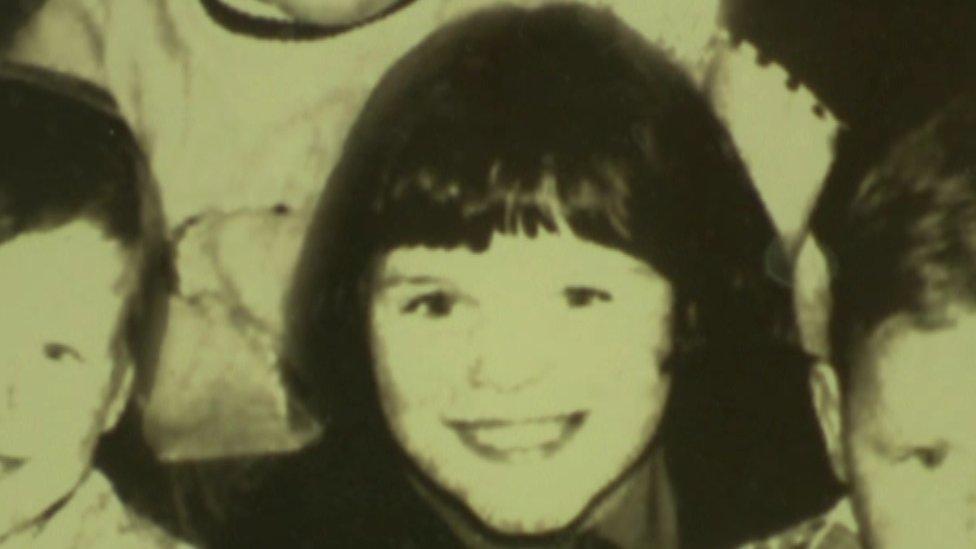Annette McGavigan: Ex-soldier questioned over shooting
- Published
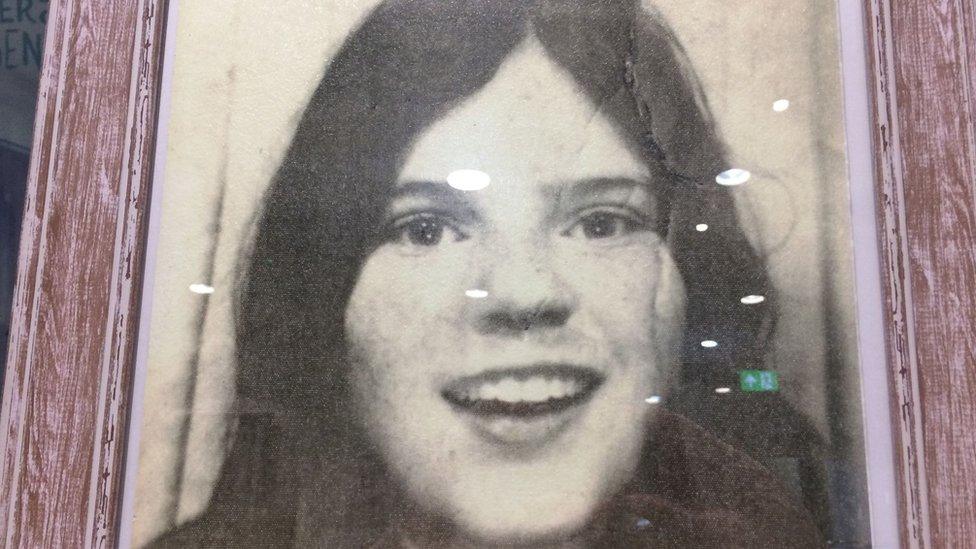
Annette McGavigan was shot dead by the army in Derry in 1971
A former British soldier has been questioned, under caution, about the killing of a Londonderry schoolgirl more than half a century ago, the BBC can reveal.
Annette McGavigan, 14, was shot dead by the Army during rioting in 1971.
The police said: "We can confirm that a suspect was interviewed under caution as part of the murder investigation, which remains active and ongoing."
The Catholic teenager was the 100th civilian killed in the Troubles.
No one has ever been convicted in relation to her death and, with the passing of the government's controversial legacy bill, it is unclear how any investigation will progress.
The bill will stop new Troubles-era court cases and inquests being held and offers a conditional amnesty to those accused of killings.
Annette's sister, May, who was just 12 at the time of the shooting, described the new law as "a disgrace".
The government has said the bill was the best way to deal with Troubles-related cases.
It has been controversial because opponents say it will remove access to justice for victims and relatives of those affected by the Troubles in Northern Ireland.
Victims' groups, the main political parties in Northern Ireland, the Republic and the Irish government are all opposed to the legislation.
A number of families are attempting to challenge the new law in the courts.
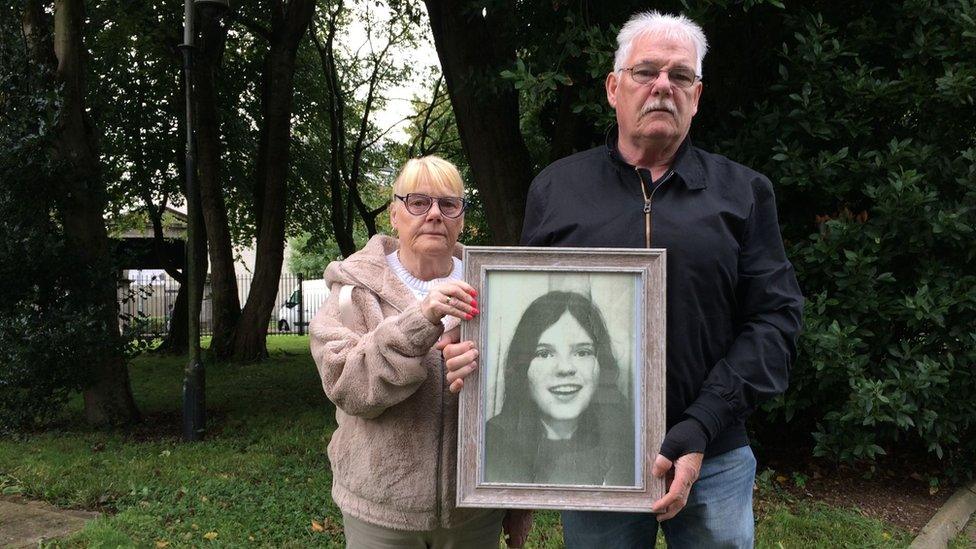
May and Martin McGavigan hold a photo of their sister Annette
May McGavigan recalled the day 52 years ago when her sister was killed.
"It was unbelievable, really, it was a nightmare," she said.
'Disgrace'
Asked about the legacy bill, Ms McGavigan said: "It's a disgrace.
"I wouldn't want Annette to be just forgotten about because, going back years ago, her name was never really mentioned and I always thought Annette was the forgotten one."
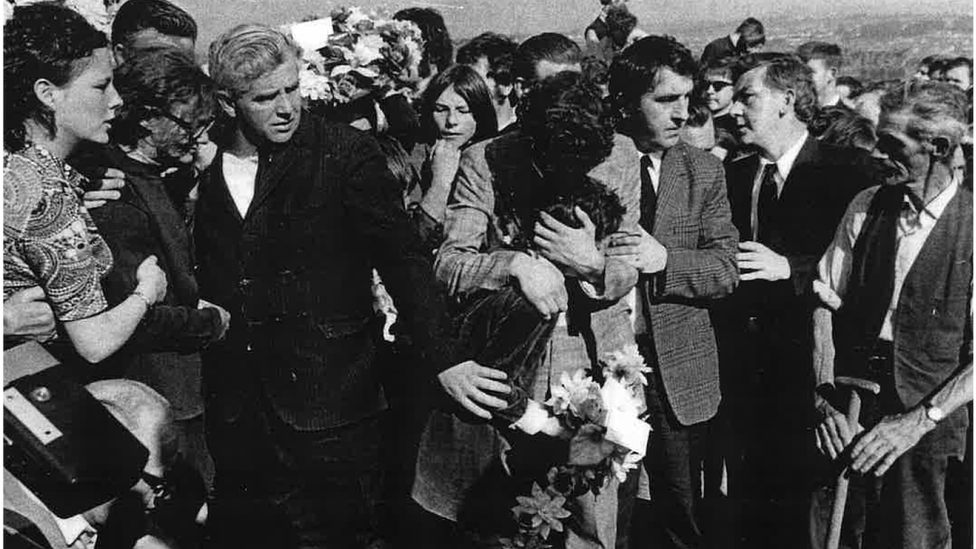
Members of Annette McGavigan's family pictured at her graveside in Derry in 1971
Annette's brother, Martin, was 11 when she was shot dead. He is now 63 and remembers the day she died clearly, recalling in particular how Annette was wearing her school uniform when the shooting happened.
"I'm very bitter and I always will be until I get truth and justice for Annette," he said.
"We've watched our mother coming home from school, hugging her daughter's clothes in the hot press every day.
"My mother's way of dealing with it was lying up the stairs over the top of the newspaper clippings and her clothes, breaking her heart, and that will live with us for the rest of our lives."
'We'll keep fighting'
He also condemned the Legacy Bill as "morally wrong".
"Chris Heaton-Harris [the secretary of state] says they want to draw a line in the sand," he said.
"The British government want to dig a hole in the sand and bury their heads.
"We'll keep fighting. Like other families, we'll keep fighting until we get truth and justice."
The Northern Ireland Office said the Legacy Bill established the Independent Commission for Reconciliation and Information Recovery (ICRIR) to conduct reviews into Troubles-related deaths and serious injury.
It said it would have "all the necessary powers to conduct criminal investigations as part of any review, ensuring compliance with the government's international obligations under the ECHR (European Court of Human Rights)".
"It ensures that individuals who decline to assist the ICRIR in the provision of information will not be granted immunity from prosecution, and can be prosecuted in the usual way should sufficient evidence exist.
"The act provides an opportunity to deliver greater information to many more victims and survivors than existing legacy mechanisms, while keeping the prospect of criminal justice outcomes open in specific circumstances."
Related topics
- Published5 September 2023
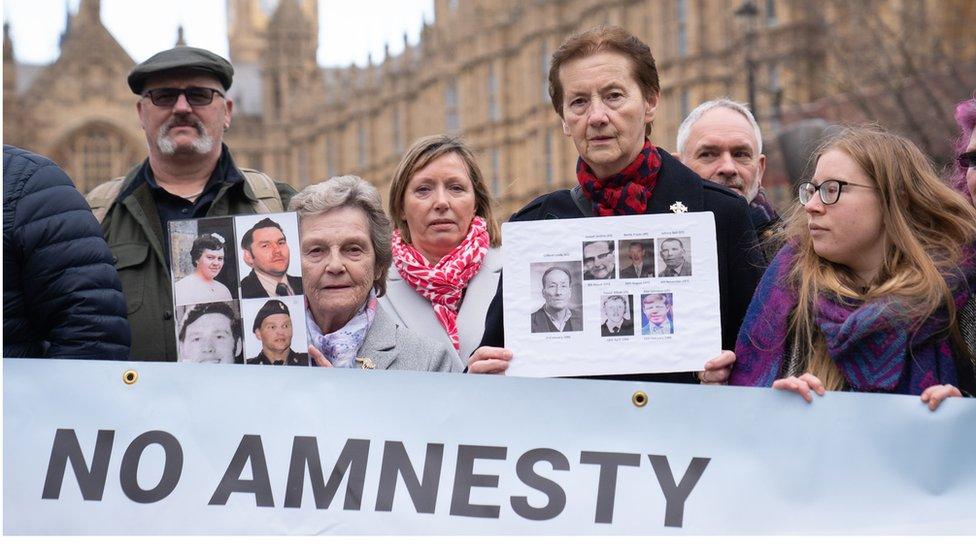
- Published19 September 2023
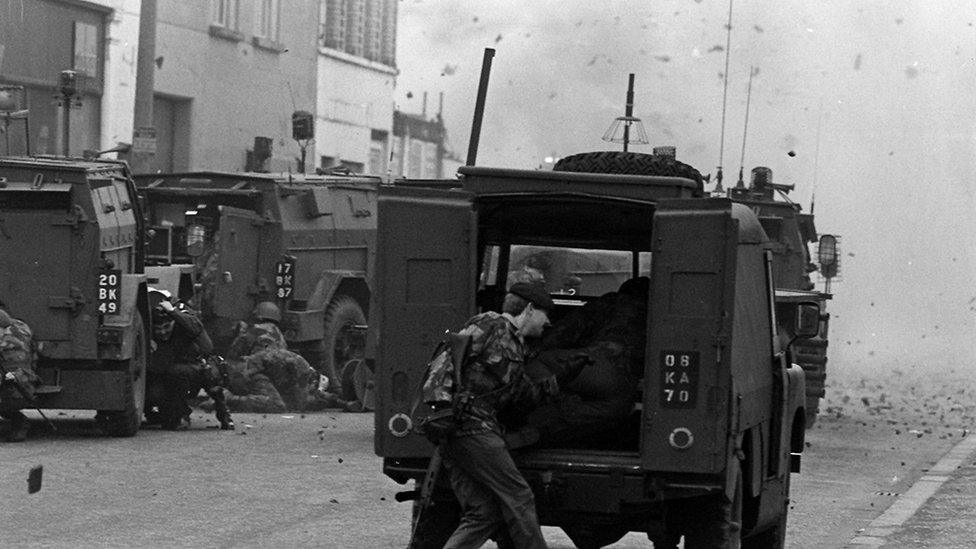
- Published18 September 2023
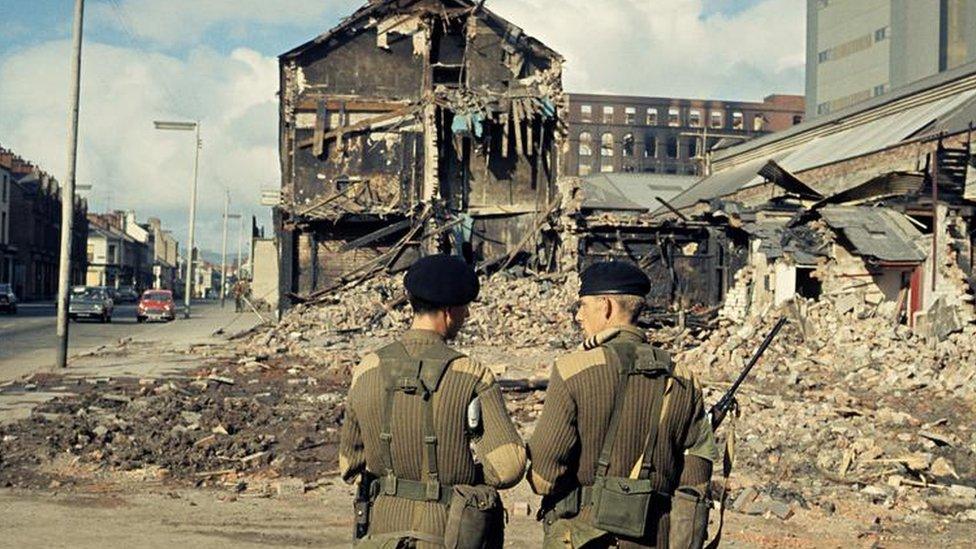
- Published7 September 2021
